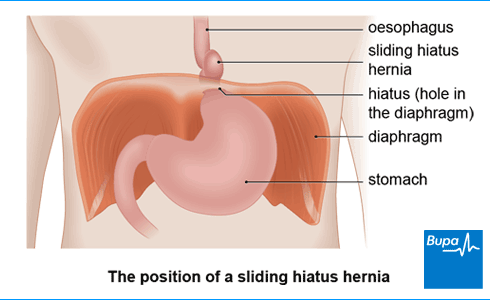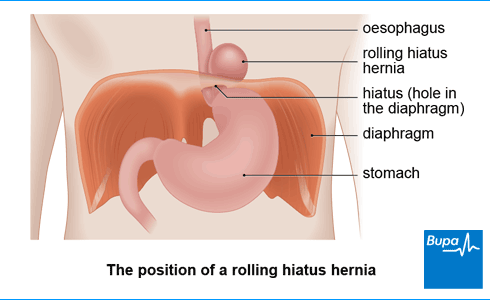Acid Reflux
What Should I Know and Do?
By: Equanimo Health Team
Updated: Oct 20, 2018
What are Acid reflux, Heartburn, and GERD?
Acid reflux occurs when stomach acid enters your esophagus causing heartburn, which is a painful burning in your throat and chest. Everyone has experienced acid reflux sometime in their lives. In fact, 40% of the US population experiences heartburn once a month.[2] However, in some individuals heartburn persists, and other symptoms accompany the heartburn such as:
-
regurgitation (food not properly swallowed and coming back up to the throat)
-
chest pain
-
sour taste in the mouth
-
bad breath
-
coughing
-
nausea or vomiting
-
trouble swallowing
-
asthma
Chronic acid reflux is referred to as Gastroesophageal Reflux Disease or GERD. At the clinical level GERD is defined as two or more experiences of acid reflux a week. GERD, when left untreated, can cause damage to throat and esophagus causing pain, bleeding and in some cases a serious condition called Barrettes esophagus. Barrettes Esophagus is a condition where the esophagus tissue becomes so damaged and changes its physical properties. People with Barrettes Esophagus are at an increased risk for throat cancer.
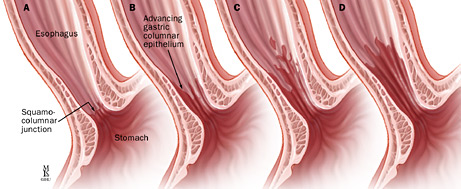
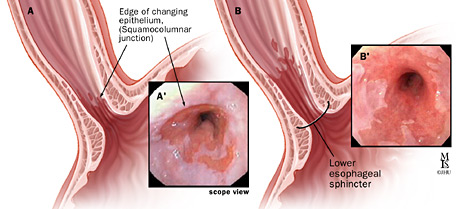
GERD is believed to affect between 10-20% of the world population.[2] Because the condition is so common and occurs in people of all ages, it is important to understand the symptoms and causes of the condition and the options available to those who suffer from it.
Typical vs. Atypical GERD
Typical Gastroesophageal Reflux Disease presents itself as heartburn and food regurgitation, however atypical GERD involves various other symptoms and often without the presence of heartburn and regurgitation. Atypical GERD symptoms include persistent coughing, throat clearing, hoarseness and voice box damage, tooth erosions, chest pain, asthma, nausea, and esophageal narrowing. Some people may experience combination of typical and atypical symptoms of GERD.
Some interesting stats on atypical GERD are that 80% of people with asthma experience GERD, and that reflux is the cause of 10 % of hoarseness, up to 60% of chronic laryngitis (inflammation of the voice box) and 60% of persistent sore throats in patients. [8]
Possible Causes of Acid Reflux
-
Hiatal hernia
-
Smoking
-
Pregnancy
-
Diet
-
Food Intolerance and Allergies
Acid reflux happens when your lower esophageal sphincter does not function properly. The lower esophageal sphincter is a circular group of muscles located at the position where your esophagus and stomach connect. The sphincter functions to allow food into the stomach while keeping stomach acid inside. When you swallow food, the sphincter relaxes, and food is allowed into the stomach. However, if these muscles are weakened, damaged, or unnecessarily loosened, stomach acid and food can flow back into your esophagus and throat.
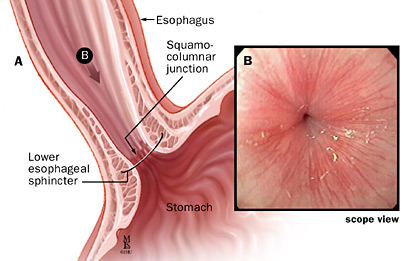
There are several different possible reasons for an unnecessarily loosened or weakened sphincter. The first is a stomach condition known as a hiatal hernia. This condition is caused when the upper part of your stomach bulges up and slips through your diaphragm into your chest.
Hiatal hernia by itself does not usually present symptoms. However, as part of your stomach is now being pushed from the rest of the stomach, the sphincter cannot work effectively in preventing acid and food from flowing back up. That is when you start experiencing reflux symptoms, but unaware that the hiatal hernia is the culprit. It is not clearly known what causes a hiatal hernia; however the possible causes include abdominal pressure due to heavy lifting, excessive pressure from straining during constipation, hard coughing, and strong sneezing.
Smoking can also cause acid reflux through a number of mechanisms including increasing the acidity of the stomach, damaging the sphincter itself, and damaging the esophageal membrane.
Pregnancy is another culprit as hormone imbalances can increase the acidity in the stomach while the pressure created on the stomach by the growing fetus can relax the sphincter causing it to work less effectively.
Another factor that is commonly linked to heartburn is diet. Different kinds of foods can trigger acid reflux. Foods that are high in fat can delay stomach emptying and decrease the pressure of the lower esophageal sphincter, making it less tight and less effective. Acidic foods such as oranges and lemons can also increase the severity and length of acid reflux symptoms, causing more damage to your esophagus and throat. Chocolate and alcohol can as well trigger reflux since they can relax the sphincter muscles. Scientists have also linked garlic and onions to increasing acid reflux symptoms.
Food intolerance and allergies can also lead to acid reflux and GERD. People may be intolerant or allergic to different foods. Therefore consuming a certain food can trigger acid reflux in some, while not causing any problem in others. Gluten and Histamine Intolerance have now been widely reported to have caused acid reflux, among several other symptoms.
8 Behavioral Changes that Can Help Manage Acid Reflux!
Lifestyle changes are recommended to anyone who experiences any degree of GERD symptoms. Most of the changes are simple and can be started right away. Better yet, these changes usually offer immediate relief!
-
Sleep on your left side.
-
Sleep with your upper body elevated
-
Stand more and avoid lying with a full stomach
-
Wear loose fitting clothing
-
Lose weight
-
Avoid your trigger foods
-
Watch HOW you eat
-
Take care of how much water you drink and when
Sleeping on your left side enables your stomach to be in a position in which the esophagus stays higher than the stomach, thus reducing the possibility that the acid or food content goes up into the esophagus.
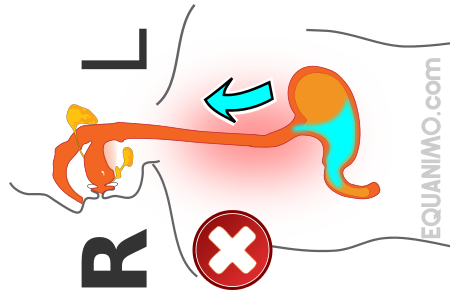
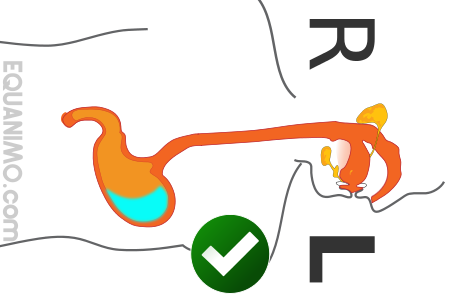
When sleeping on the left side alone is not enough, or it’s just not your preferred position, try elevating your upper body instead. The simplest way to do this is either by tilting up one side of the mattress or by supporting your upper body with a wedge pillow. This will allow the force of gravity to make it harder for acid to enter your esophagus.
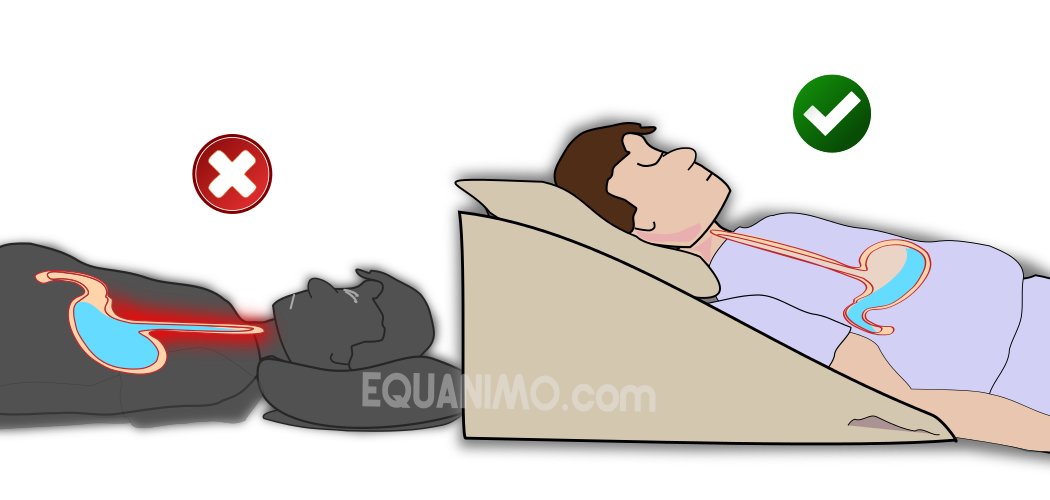
Managing your sleep is very crucial since sleep quality affects overall health and life quality. Sleeping position that allows acid to flow back on a daily basis will not only disrupt your nights, but also exacerbate the damage to your sphincter, esophagus and throat. On the other hand, when you lie in a position that helps you avoid reflux, you will get a better night’s sleep while allowing your body to heal the damage caused by earlier episodes of heartburn. Many sufferers have found a great relief from nocturnal reflux when sleeping in an inclined position.
After meals it is wise to avoid lying down for about three to five hours to allow your food to digest. Lying, especially in a flat position, with a full stomach puts unnecessary strain on your abdomen during the digestive process causing more acid to escape into your esophagus. Sitting and bending also put extra pressure to your stomach. So during the day, try standing more often.
Here are a couple examples to give you some idea of what you can do. Try setting your desk so that you can comfortably stand while working on your computer. Use a stool on which you can half stand, half sit. This position will still allow room for your abdomen while helping you to stand for a longer period of time without getting too tired.

Wardrobe is one of the simplest lifestyle changes that can greatly help those afflicted with GERD. Wearing tight clothing (including tight underwear) that squeezes your belly or your chest can cause unnecessary pressure on your stomach and esophagus. If you suffer from GERD, wearing loose fitting clothing will help.
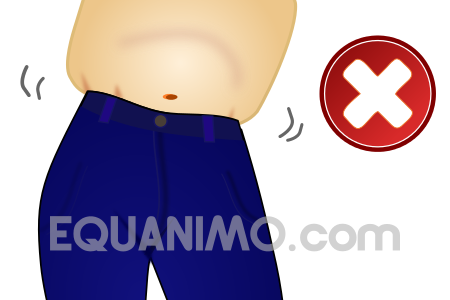
Obesity and weight gain have long been linked to acid reflux so even losing the tiniest bit of fat (especially around your waistline) will help create more desirable amount of pressure on your stomach muscles. It will also give your belly extra room when you wear your trouser or skirt, which help further reduce chances of acid reflux being triggered by tight clothing.
If you suspect that you may have any type of food allergies or intolerance, it is highly recommended to get tested. By finding out your allergies and avoiding your problem foods you can greatly reduce the risk of developing GERD. In fact, many people have managed to eliminate their acid reflux recurrence by avoiding their intolerant food at the very early stage of the reflux symptoms.
Eating smaller meals throughout the day instead of large meals will allow your stomach to digest food more easily. So, instead of finishing your lunch in one sitting, you can divide it in two portions and save the second half two hours later. Also make sure that you eat slowly and chew your food thoroughly. This is important for a few reasons. First eating quickly signals the stomach to produce more acid that can exacerbate the situation. Two, eating slowly provides time for your brain to feel full before you overeat. The fuller your stomach is the more stress your lower esophageal sphincter feels, and the more easily the acid can flow back into your esophagus.
Drinking enough water is always recommended, however the timing and the amount you drink are especially important if you are suffering from acid reflux. In addition to food, drinking water will further fill up your stomach and strain the sphincter, which may result in food, now more liquid, gets pushed through the sphincter and flows up to your esophagus more easily. Best practices will be to avoid drinking water during meal and approximately 30 minutes right before and right after each meal. To ensure you stay hydrated, drink small amount of water throughout the day and between meals. Also avoid drinking large amount of water soon before you go to bed.
Possible Medical Treatments
There is a slew of over the counter and prescribed treatments that can alleviate symptoms. Proton pump inhibitors (PPI) can be prescribed by your doctor to limit the production of acid in your stomach. Antacids can be taken to neutralize gastric acid in your stomach to help relief the burn or pain sensation. In rare cases, surgery can be performed to strengthen your lower esophageal sphincter by wrapping parts of the stomach muscles around it, thus allowing for less acid to pass back into the esophagus.
Medical Warnings!
It is important to note that PPI and antacids are said by many health experts to have created negative health effects. Acid suppressing drugs may actually create a range other problems such as poor digestion and food absorption, overgrowth of bacteria, hinder infection resistance, and increase risks of many other diseases including cancer. [12]

A research with 73,679 participants and 8 years of data published in JAMA Neurology indicates that long-term users of PPI have 44% higher chance of developing dementia. The research concluded “the patients receiving regular PPI medication had a significantly increased risk of incident dementia compared with the patients not receiving PPI medication.” [13][14]
Possible Natural Remedies
There are also a few natural remedies that can help soothe the symptoms of heartburn. Iberogast is an herbal product that contains Angelica, Caraway, Clown's mustard plant, German chamomile, Greater celandine, Lemon balm, Licorice, Milk thistle and Peppermint. Iberogast has been shown in some studies to reduce heartburn.
Another natural remedy is a product called slippery elm powder. Slippery elm stimulates the nerves endings in the gastrointestinal tract and promotes mucus secretion, which may help protect the gastrointestinal tract against ulcers and excess acidity. [6]
Chewing gum (after a meal) can also help reduce acid in the esophagus as gum chewing increases saliva production. Saliva reduces the acidic environment of your throat and stomach.
There are also massage therapies performed by certified chiropractors that are said to help relief or even eliminate hiatal hernia.
Take Actions – Reduce the Risks!
Acid reflux is a condition that should not be overlooked as it can cause obvious discomfort and pain to the sufferers. However, of more concern is the fact that chronic acid reflux, GERD, can cause bleeding, asthma, voice deterioration, and lead to a precancerous condition. Therefore it is very important to follow a few simple lifestyle practices at the early stage of the symptoms. Your immediate actions are crucial in reducing the risk of future complications. However, it is also recommended to consult with your physician to find the possible root cause of your reflux symptoms and discuss any additional treatment options.

